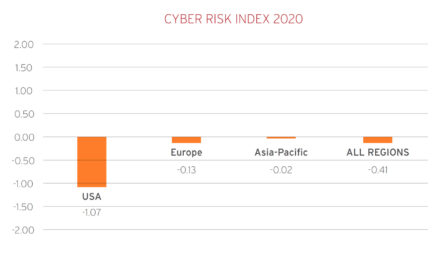Respondents saw it as presenting both opportunities and challenges for security teams — depending on whether organizations had the right management strategies.
In a July–August 2023 survey of 1,420 IT decision-makers across manufacturing, digital native/technology, financial services, retail, government/public sector, and healthcare sectors in the Americas, Europe, Asia, and the Middle East on IT and cybersecurity trends, AI played a critical role in respondents need for investments that will strengthen their organizations’ security posture.
When asked about the technology, Asia Pacific and Japan region (APJ) respondents indicated that AI had increased their need for cybersecurity (72%); resulted in stricter security measures on data storage and access (62%); directed greater attention to the exposure of sensitive data (53%); and resulted in stronger classification frameworks and guidelines (52%).
Respondents were also indicated cyber investment plans for areas such as identity access management (95%), application security (88%), cloud-native security (87%) and endpoint detection and response (85%). Within the 89% of respondents whose organizations have a formal AI governance and security policy in place, 37% indicated that the level of awareness and understanding among employees of their corporate AI governance and security policy was “great”, compared to 49% that had characterized the level of awareness and understanding as “fair”.
Other findings
Across the spectrum of sentiments on various aspects of cybersecurity, some trends were:
- 66% of respondents indicating having increased their cyber budget over the past year, with 32% of this group having raised their cybersecurity budget by 14% or more
- 3% indicated they had cut cyber budgets
- Respondents indicated their biggest cyber investments were in cloud-native security (59%), data security (50%), and application security (52%)
- The factor driving respondents’ cybersecurity investments was a rise in concern over cloud architecture attacks, with 54% with this concern relying on an external partner to deliver cloud-native security. The other factors were the fear of data breaches or loss; and the need to mitigate potential risks and threats to the business
- 49% of APJ respondents cited engaging with cybersecurity services partners for consultation or support as a top three priority, with a lack of internal expertise being the leading factor
- C-Suite executives in the survey were most concerned about cybersecurity (65%); sustainability matters (52%); interest rates (47%); retaining/hiring employees (42%); and supply chain/logistics management (37%)
- 78% of respondents that had indicated that the level of concern for cybersecurity had increased in their C-suite also noted better collaboration between their security team and the C-suite to effectively reduce the cyber skills gap
- A shortage of workers with cybersecurity skills was the greatest cybersecurity challenge being indicated by APJ respondents.
According to Sandeep Bhargava, Senior Vice President of Global Services and Solutions, Public Cloud Business Unit, Rackspace Technology, which commissioned the survey: “Cybersecurity was listed as the top concern for the C-suite in APJ, which shows the significance of it among other critical business challenges. In the ever-evolving landscape of cybersecurity, AI has emerged as both a potential threat vector and a powerful tool of resilience. As organizations in APJ prioritize investment in cloud-native security, they need to navigate the dual role of AI, embracing it as a critical asset in their security arsenal while acknowledging the imperative defend against malicious threat actors with external expertise.”





















